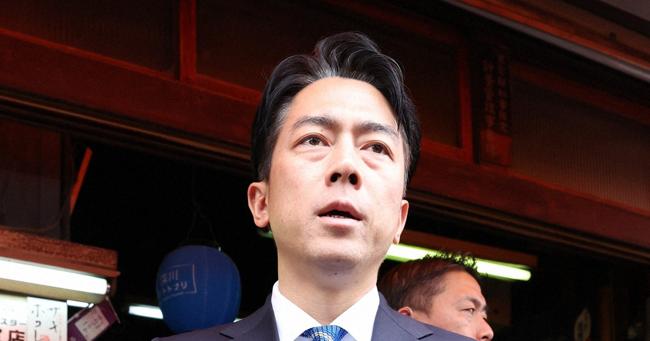Summary
Indonesia plans to announce economic stimulus measures on June 5 to boost economic activity and consumer purchasing power this quarter, a government spokesperson said on Saturday.
Source: Reuters on MSN.com

AI News Q&A (Free Content)
Q1: What are the main drivers of consumer innovation in Indonesia's retail sector, especially in the context of recent economic stimulus measures?
A1: Consumer innovation in Indonesia's retail sector is being driven by technological adoption, changing consumer behaviors, and supportive government policies. The government's recent economic stimulus measures are designed to boost consumption and purchasing power, encouraging retailers to adopt digital payment systems, enhance delivery logistics, and personalize customer experiences. Advances in artificial intelligence and fintech are also enabling greater digital financial inclusion, particularly post-COVID-19, by providing peer-to-peer lending to previously unbanked populations. These innovations are helping to reshape Indonesia's retail landscape, making it more adaptive and resilient to economic shifts.
Q2: How has the adoption of artificial intelligence technology impacted cross-border trade and retail innovation in Southeast Asia, including Indonesia?
A2: Artificial intelligence (AI) adoption has significantly increased trade volumes in Southeast Asia, with the effects being more pronounced in regions that have advanced technological infrastructure and supportive regulatory frameworks. In Indonesia, AI is enabling retailers to optimize inventory, predict consumer preferences, and enhance supply chain efficiencies. The broader impact includes stronger cross-border retail linkages and more dynamic market responses to global economic changes, underscoring the need for robust infrastructure and favorable policies to maximize AI-driven growth.
Q3: What does recent scholarly research reveal about the relationship between education and consumer innovation in Indonesia?
A3: Recent research using Indonesian Family Life Survey data shows that higher educational attainment is associated with healthier food consumption patterns and greater adoption of innovative products. Individuals with upper secondary or higher education consume 31.5% more healthy foods and 22.8% less unhealthy foods on average compared to less-educated individuals. This suggests that education not only supports healthier consumption but also drives openness to innovative retail offerings, highlighting the importance of expanding education to promote consumer innovation.
Q4: What are the economic impacts of fintech innovation on Indonesian consumers since the COVID-19 pandemic?
A4: Fintech innovation has played a crucial role in enhancing financial inclusion and resilience among Indonesian consumers post-COVID-19. Although the pandemic initially negatively impacted fintech lending, the trend has since rebounded positively. The availability of peer-to-peer lending and other digital financial services has enabled more Indonesians, especially those previously unbanked, to access credit and participate in the digital economy. These developments are supporting consumer spending and retail growth, aligning with the goals of the government's economic stimulus measures.
Q5: How does consumer behavior research inform the design of economic stimulus packages aimed at boosting retail innovation?
A5: Consumer behavior research provides insights into how emotions, social influences, and technological adoption shape purchasing decisions. By analyzing extensive data from consumer relationship management systems, policymakers can identify patterns in loyalty, re-purchase intentions, and responsiveness to stimuli. This information allows for the creation of targeted stimulus packages that incentivize retailers to innovate in ways that directly address consumer needs, such as offering digital payment solutions and personalized shopping experiences.
Q6: What are the primary challenges and opportunities for Indonesia in becoming a regional hub for manufacturing and retail innovation?
A6: Indonesia faces challenges such as the need for improved infrastructure, greater technological readiness, and regulatory support to become a regional hub for manufacturing and retail innovation. However, opportunities abound due to the country's large domestic market, growing digital ecosystem, and increasing foreign direct investment. Recent studies show that spillover effects from offshore manufacturing decisions are influencing Indonesia's innovation landscape, with dynamic connectedness among Southeast Asian nations fostering collaborative growth.
Q7: Based on recent academic literature, what are the pros and cons of rapid retail innovation for Indonesian consumers?
A7: Pros of rapid retail innovation for Indonesian consumers include enhanced access to diverse products, improved convenience through digital channels, and greater financial inclusion. However, cons include potential disparities in access, particularly for less-educated or rural populations, and the risk of widening inequality in healthy consumption patterns. Policymakers are encouraged to address these gaps through inclusive education and infrastructure development to ensure broad-based benefits from innovation.
References:
- Consumer behaviour - Wikipedia
- Innovation - Wikipedia
- Consumer adoption of technological innovations - Wikipedia
- The Impact of COVID-19 on FinTech Lending in Indonesia: Evidence From Interrupted Time Series Analysis
- The impact of artificial intelligence technology on cross-border trade in Southeast Asia: A meta-analytic approach
- Education and Food Consumption Patterns: Quasi-Experimental Evidence from Indonesia
- Will Southeast Asia be the next global manufacturing hub? A multiway cointegration, causality, and dynamic connectedness analyses on factors influencing offshore decisions





